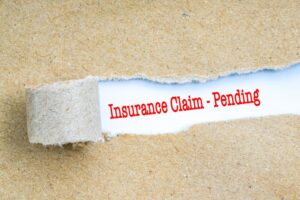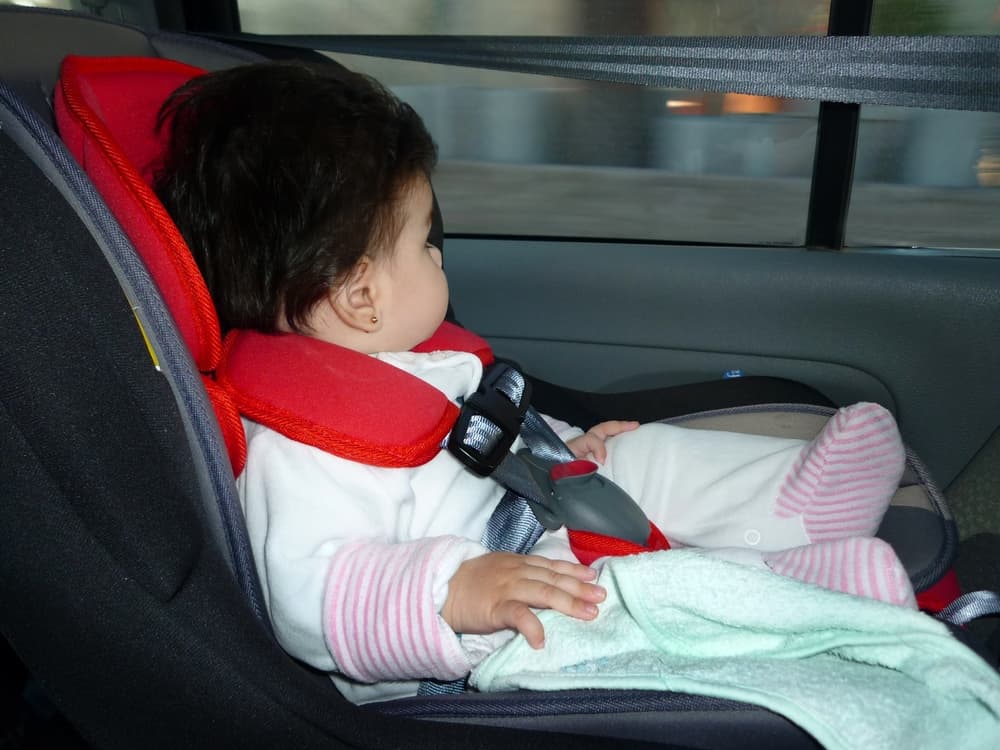Car and booster seats help keep children safe on the road. However, understanding exactly what the law requires can confuse many parents and caregivers in West Virginia.
With clear answers and useful insights from experienced car accident lawyers, you can better understand West Virginia booster seat laws, the reasons behind them, and what they mean in the fight for maximum compensation when someone else’s negligent actions harm your child.
Why Car Seat Laws Matter
Every parent wants to protect their child, and car seats and booster seats are among the most effective tools for doing just that. According to the National Highway Traffic Safety Administration (NHTSA), car crashes are one of the leading causes of death among children in the United States.
Proper use of car seats drastically reduces the risk of injury or death—but just how effective are they? Take a look at these statistics that highlight why car seat laws are so crucial to the safety of your little ones:
- Reduced risk for infants: Properly secured car seats lower the risk of fatal injury in infants by up to 71 percent in passenger car crashes.
- Reduced risk for toddlers: For toddlers aged 1–4, car seats cut the risk of fatal injury by 54 percent.
- Reduced risk for older children: Booster seats for children aged 4–8 lower the risk of serious injury by 45 percent compared to seat belts alone.
- Improper use rates: Despite their life-saving potential, studies show that nearly 46 percent of car and booster seats are installed or used incorrectly, dramatically reducing their effectiveness.
- Child safety statistics: The back seat of a car is considered 29 percent safer for children under 13 than the front seat, especially when airbags are present.
- Annual lives saved: The Centers for Disease Control and Prevention (CDC) estimates that car seats save an average of 325 lives of children under five each year in the U.S.
- Protection for rear-facing seats: Rear-facing car seats provide critical support to a child’s neck and spine, reducing the risk of severe neck injuries during a collision.
These numbers are much more than just statistics. They reflect lives saved, families spared from devastating loss, and the immense power of safety measures when they’re used correctly.
But there’s another reason to follow car seat laws and safety guidelines that goes beyond the numbers: failing to properly secure a child in your vehicle can make you legally liable. This could lead to fines, potential criminal charges, or complications in a personal injury claim if an accident occurs.
Following the law preserves your family’s safety and helps protect you from legal and financial complications in the event of a serious crash.
Understanding West Virginia Car Seat Laws
West Virginia law requires that all children up to the age of 8 must be properly secured in a federally approved child safety seat unless they reach a height of 4 feet and 9 inches before their eighth birthday. Here’s what this means in practice:
- Infants and Toddlers: Rear-facing car seats are encouraged for infants and young toddlers as they provide extra neck and spine support. State law does not outline a specific age or weight limit for transitioning to a forward-facing car seat, though federal guidelines recommend keeping children rear-facing for as long as possible.
- Children Over 2 Years Old: Once a child outgrows their rear-facing seat, they can transition to a forward-facing car seat with a harness. Depending on the model and weight limits, these seats are generally suitable for kids aged 2–6.
- Booster Seats: These child safety seats are the next step for children weighing over 40 pounds or who have outgrown their forward-facing car seat. They help position a child so that a seat belt fits properly across the upper thighs and shoulder instead of the neck or abdomen.
Once a child reaches 4’9″, they can transition to using the vehicle’s regular seat belt. However, parents must properly position the seat belt to avoid injury. If the seat belt doesn’t fit snugly across the upper thighs or the shoulder, the child should continue using a booster seat—even if they meet the height or age requirements.
Navigating Legal Challenges When Car Seats Are a Factor in Personal Injury Claims
Car accidents involving children are every parent’s worst nightmare, especially when car seat compliance becomes a pivotal issue. Beyond ensuring your child’s safety, following West Virginia’s car seat laws has critical legal and financial implications that can directly impact any personal injury claim or lawsuit you pursue.
Understanding the Legal and Financial Stakes
Failing to comply with car seat regulations can carry immediate consequences, such as fines between $10 and $20 for a first offense. While this penalty might seem minor on paper, the reality is much more complex in the event of an accident.
Improperly securing your child can lead to severe injuries, skyrocketing medical expenses, and legal complications if you seek compensation. Medical care for children after catastrophic accidents can be extraordinarily expensive. This includes emergency medical treatment, long-term therapy, surgeries, and ongoing care for severe injuries like spinal damage or traumatic brain injuries.
Even if another driver’s negligence caused the crash, insurance companies will likely scrutinize whether the proper child restraints were used. If they find non-compliance, they may argue that the injuries wouldn’t have been as severe if you had followed the law. This can diminish or deny your settlement, even when the fault lies entirely with the other driver.
The Challenges of Pursuing a Claim
 Resolving a personal injury claim often becomes more difficult when car seat compliance becomes an issue. Here are some challenges parents may face during this process:
Resolving a personal injury claim often becomes more difficult when car seat compliance becomes an issue. Here are some challenges parents may face during this process:
- Delayed claims: Questions about whether the car seat was properly installed or appropriate for your child’s age and size can prolong the claims process. Investigations might involve gathering detailed evidence to prove compliance with state and federal guidelines.
- Reduced compensation: If the insurance company successfully argues that improper car seat usage contributed to the severity of the injury, they could reduce your payout or deny compensation altogether.
- Unfair blame: Defense lawyers may attempt to use non-compliance as a tactic to shift blame onto you, distracting from the reckless or negligent behavior that caused the crash in the first place.
These challenges often feel like an added burden when you’re already juggling the emotional and financial toll of caring for an injured child. For many, enlisting the help of an experienced car accident attorney can help relieve the pressure of pursuing the justice and compensation you deserve.
How Legal Representation Can Help
After an accident, having a knowledgeable personal injury lawyer on your side can make an enormous difference in navigating these complexities. Attorneys skilled in car accident cases understand how to present the facts in a way that protects you and your child from unfair scrutiny.
Here’s how they can help:
- Assist in gathering essential evidence: An attorney can help gather and compile evidence, including police reports, medical records, and proof of proper car seat usage, to strengthen your case and counter any unfair narratives.
- Navigating insurance negotiations: Insurance companies often aim to minimize payouts. However, a lawyer knows how to push back against these tactics, ensuring you receive a fair settlement.
- Protecting your financial stability: With an experienced attorney handling the legal complexities, you can focus on your child’s recovery while they work to secure compensation for medical expenses, future care needs, lost income, and even emotional distress.
- Combating false narratives: If the opposing party tries to unfairly blame you for your child’s injuries due to car seat usage, a lawyer can provide expert testimony and legal defenses to shift focus back where it belongs: on the reckless or negligent actions of the at-fault driver.
The ripple effects of an accident can be profound, but the right legal support can help you overcome complications with car seat laws, secure financial stability, and find some peace of mind during a tough time.
Common Misconceptions About Car Seat Safety
Many parents believe they’re already doing everything right, but small mistakes in car seat use are more common than you might think. To ensure you’re complying with both legal and safety standards, avoid these frequent issues:
- Improper installation: The car seat must be securely installed according to manufacturer instructions. Many communities in West Virginia have certified technicians who can help verify proper installation.
- Moving to the next seat too soon: Transitioning a child to a forward-facing seat, booster, or regular seat belt before they’re ready can increase their risk of injury in a crash. Always check weight and height guidelines for your specific car seat model.
- Incorrect seat belt positioning: Seat belts must fit snugly and lie flat across the upper thighs and shoulder without cutting across the child’s neck or stomach.
- Skipping the booster seat stage: Even if your child seems “grown-up,” skipping the booster stage can lead to improper belt positioning, which increases the risk of internal injuries during a crash.
Even after you’ve mastered the laws and safety tips surrounding car seats, it’s important to emphasize safe driving practices every day. Here are a few reminders for staying safe on West Virginia roads:
- Avoid distractions: Texting while driving or adjusting controls can take your focus off the road, putting you and your passengers at risk.
- Follow speed limits: Be especially cautious on winding rural roads or during inclement weather when visibility is poor.
- Inspect car seats regularly: Check for recalls on your car seat model and replace seats that have expired or been involved in an accident.
Whether navigating the complexity of insurance claims or holding a negligent driver accountable, the right guidance allows you to focus on what truly matters: healing and moving forward.
What Parents Should Do After an Accident
 If you’re in an accident with children in the car, it’s vital to act quickly and follow steps to both protect their well-being and safeguard your legal options. Here’s what parents should prioritize after a collision:
If you’re in an accident with children in the car, it’s vital to act quickly and follow steps to both protect their well-being and safeguard your legal options. Here’s what parents should prioritize after a collision:
- Contact a lawyer: Before speaking to insurance companies or making statements, consult a West Virginia car accident attorney. A lawyer can provide important guidance, protect your rights, and help you avoid pitfalls that could weaken your case.
- Seek immediate medical attention: Even if your child shows no immediate signs of injury, arrange a thorough medical evaluation. Children may not always recognize or communicate symptoms, and conditions like internal injuries or concussions can take time to surface.
- Document every detail: Take photos of the car seat, its installation, and the accident scene. Preserve the car seat itself, especially if you suspect it played a role in your child’s injuries. Collect contact information for witnesses and keep copies of police reports.
- Avoid sharing on social media: Refrain from posting anything about the accident or your child’s condition online. Insurance adjusters often monitor social media accounts to find information that could be used to devalue your claim.
- Notify your insurance company: Report the accident promptly to your insurance provider, but avoid giving a recorded statement or accepting fault without consulting your lawyer.
- Preserve evidence: Keep all receipts, bills, and documentation related to the accident. This information is critical in building a strong case, whether it’s medical expenses, transportation costs, or proof of missed work.
No parent wants to experience a car accident with their child, but if it happens, these steps can make a significant difference in your child’s recovery and your ability to secure the resources needed for their future. When the road ahead feels uncertain, having experienced legal support can bring clarity and stability while you focus on what truly matters most.
Trouble Understanding West Virginia Booster Seat Laws and Car Accident Claims? Contact Robinette Legal Group For A Free Case Evaluation
Understanding and applying West Virginia’s booster seat laws isn’t just about avoiding fines or satisfying legal requirements. It’s about safeguarding the most precious lives in your car.
A properly secured car seat or booster seat can drastically reduce the risk of harm to your child in the event of an accident and give you peace of mind knowing you’ve done everything you can to protect them.
Are you wondering what steps to take after a car accident involving a child or looking for legal advice tailored to your specific case? Contact personal injury lawyer, for a free case evaluation to discuss how we can assist you in protecting your rights and pursuing justice for your family.
Jeffery Robinette was admitted to practice law in 1991 and is licensed in all levels of state and federal trial courts in West Virginia. Mr. Robinette is also licensed in all state and federal appeals courts in West Virginia and the United States Supreme Court. As a National Board Certified Trial Attorney who has handled hundreds of motor vehicle, injury, and construction defect claims and a leading author on insurance claims settlement issues and difficulties in West Virginia, Jeff Robinette is uniquely qualified to represent your best interest.





